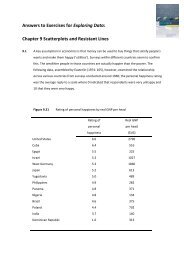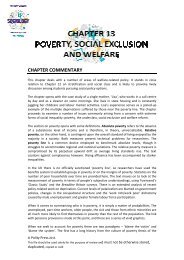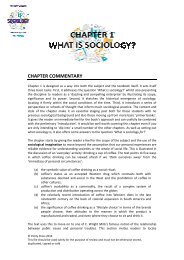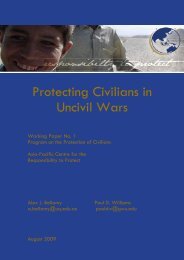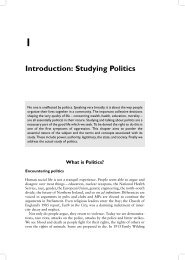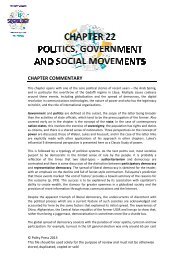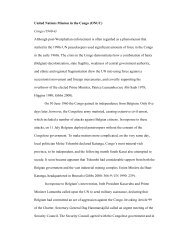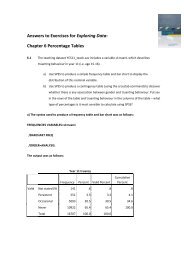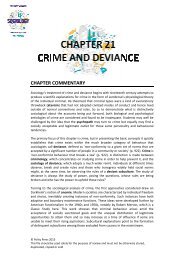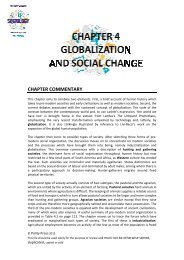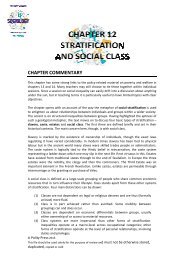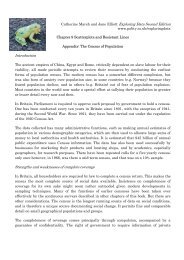KFOR case study - Polity
KFOR case study - Polity
KFOR case study - Polity
Create successful ePaper yourself
Turn your PDF publications into a flip-book with our unique Google optimized e-Paper software.
support operations, impartiality in this sense meant treating all parties equally in<br />
relation to their adherence to the mandate.<br />
As with IFOR/SFOR and EUFOR, <strong>KFOR</strong> formed part of a much wider<br />
international peace mission. However, not only did <strong>KFOR</strong> take a more proactive role<br />
in civil affairs it also tried to coordinate its activities with other organizations to a<br />
much greater extent than had been the <strong>case</strong> in earlier complex missions. To facilitate<br />
information sharing between <strong>KFOR</strong> and NGOs, the military force set up ‘drop in<br />
centres’ throughout the province. These centres were used to distribute information<br />
about what <strong>KFOR</strong> was doing and what services it could provide to other<br />
organizations. Similarly, NGOs were encouraged to use the centres to inform <strong>KFOR</strong><br />
of their activities. This provided the military component of the mission with a better<br />
understanding of precisely who else was operating in a particular place and helped to<br />
identify possible areas of cooperation.<br />
From 1999 until 2008, the key problem confronted by <strong>KFOR</strong> was the lack of<br />
overall political direction prompted by continuing international doubt about what<br />
Kosovo’s final status should be. This doubt discouraged both sides from making<br />
political concessions in the search for national reconciliation and made it very<br />
difficult to ease ethnic tensions, particularly around the divided city of Mitrovica.<br />
However, despite this problem, <strong>KFOR</strong> has succeeded, by and large, in creating a<br />
secure environment for the transitional administration. There were three main reasons<br />
for this. First, it enjoyed relatively high levels of consent from the people of Kosovo,<br />
largely due to the widespread perception of NATO as a liberating army. But the fact<br />
that consent did not disappear despite the lack of progress towards independence,<br />
<strong>KFOR</strong>’s use of force and other measures against some former KLA fighters, and the<br />
temporary breakdown of public order in 2004 can be attributed to the ‘consent



